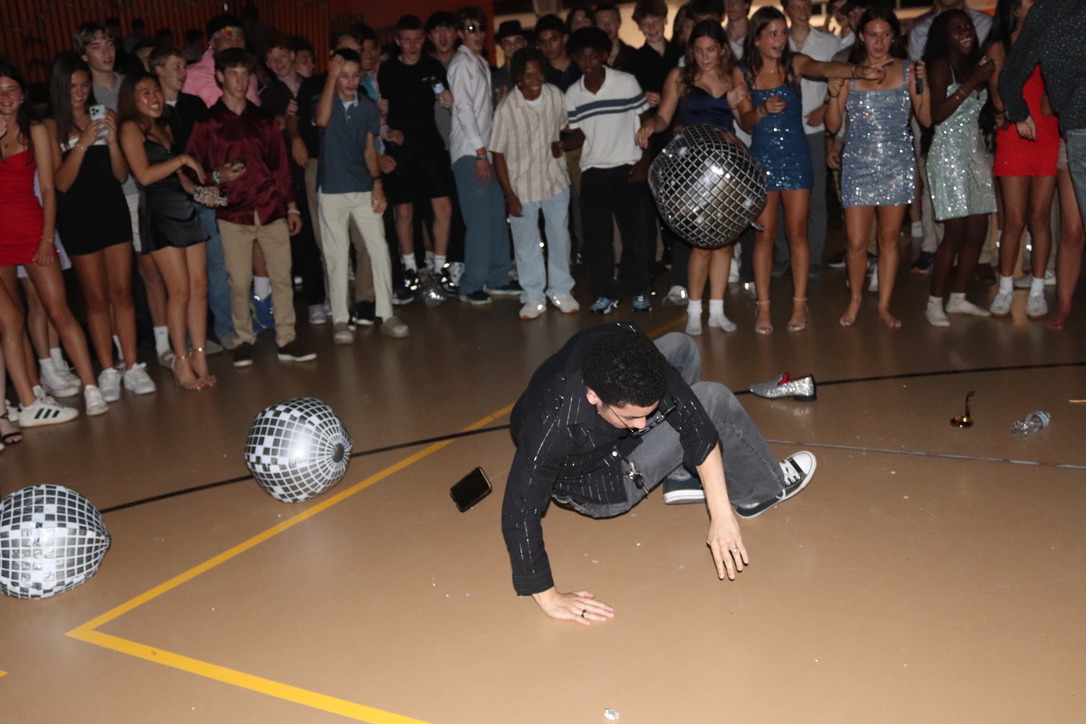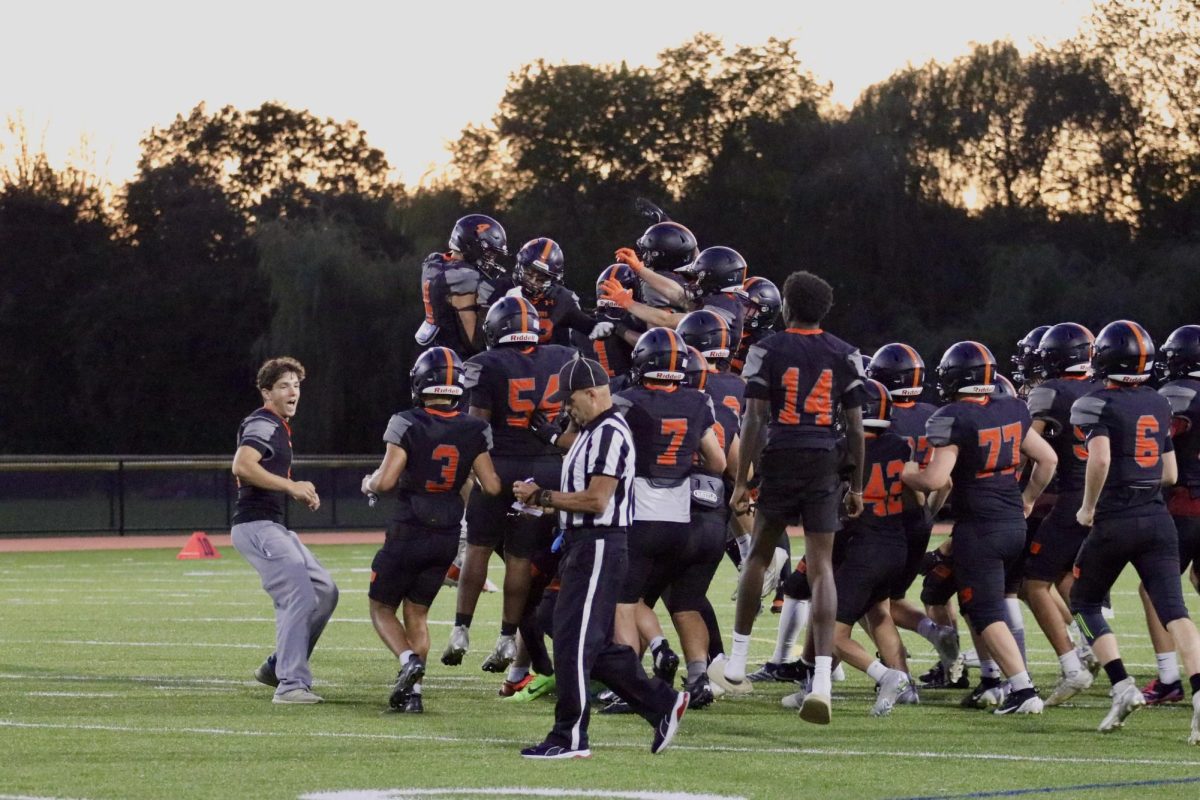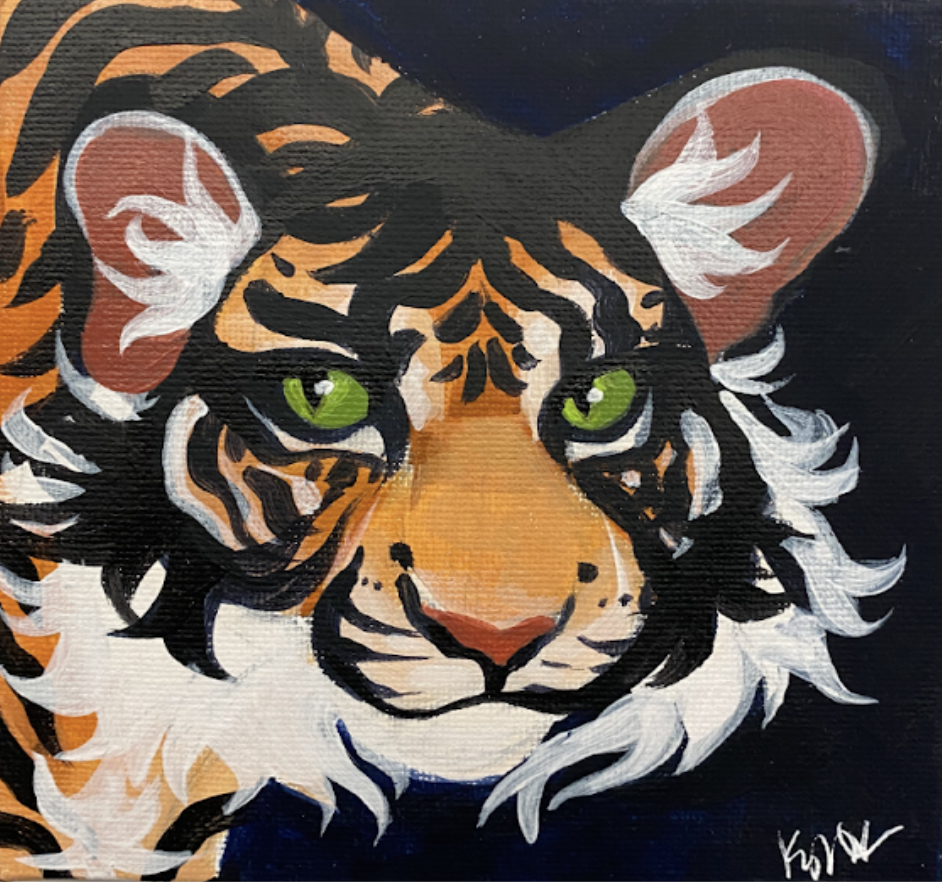Bryn’s Books: We are Okay
Credit: Elizabeth Zhong
exrctyubibyf8yb
April 28, 2021
I love almost every genre in the reading world, but my favorite genre is realistic fiction, especially for young adults. Young adult fiction is known for teaching life lessons essential for growing up. I love relating to another character’s world and having insight into their lives and how their experiences can correlate with my own. Most of my bookshelf is composed of classic YA writers: John Green, Nicola Yoon, Laurie Halse Anderson and countless others. I decided to expand on my YA novel collection, and I came across “We Are Okay” by Nina Lacour at the bookstore on display in the YA section. After flipping through the pages and finding the description engaging, I decided to give it a go.
“We Are Okay” is the story of Marin, a girl who was raised by her grandfather in San Francisco after her mother perished in a surfing accident when Marin was only three years old. Marin spent her childhood growing up with her best friend, Mabel, on San Francisco’s beaches, all while grieving her mother. When Marin was 18, she suffered the sudden and traumatic loss of her grandfather and soon discovered a secret that would change her life forever. Marin leaves everything behind, including Mabel, and starts a new life in college in New York, cutting off all communication with her old life in California. The story begins when Marin is left alone at college during winter break with nowhere to go. Mabel comes for a dreaded visit, and Marin is forced to come to terms with her past and the secret that changed everything.
The novel alternates between past and present events that occur in only a few days, exploring Mabel’s visit with Marin during winter break and the past secrets revealed from the summer that transformed Marin’s life. The novel is simple to read, with primarily short chapters and no difficult language nor hard-to-digest passages. It’s a character-driven story, meaning that the characters are multilayered, and their complex emotions drive the plot, which allows the reader to have powerful and heartfelt connections to the characters.
The book delves into significant themes such as grief and depression. The reader can relate to Marin’s isolation and lack of self-worth, which is a common problem in today’s society. While Marin is still suffering from her grandfather’s death during the holiday break, Mabel tries her best to reach out to Marin. Still, her degrading feelings for herself keep Mabel from helping her. I like how this element of the story reveals how grief can cause a person to feel alienated and how suffering a tremendous loss can have long-lasting impacts on a person’s emotional state. Marin undergoes major character development and finds ways to cope with her negative feelings about herself by finding comfort with Mabel and Mabel’s parents, who greatly influence Marin’s life. The book also includes themes about sexuality, and Marin and Mabel figure out their identities as they explore their romantic relationship and feelings for one another and how it shapes their characters.
Even though the novel conveyed an emotional experience for the reader, I didn’t have any moments where I became fully invested in the character’s feelings and felt everything they did. I wasn’t able to fully connect with the book and relate to it. I felt as though the story forced the emotions, and it didn’t evoke as many emotions as I had initially thought it would. The story also had a primarily “telling” writing style. It didn’t include a lot of figurative language, which made it less appealing to me. The book felt slow-paced, and I frequently got bored with the plot. However, the ending was still satisfying, and the plot twist captivated my attention.
Although “We Are Okay” didn’t significantly impact me, it was still an easy and pleasant read. I think others could appreciate the story more than I did, especially those who enjoy complex characters, emotion-provoking plots and short, easy-to-read books.
Bryn’s rating: 3/5



























